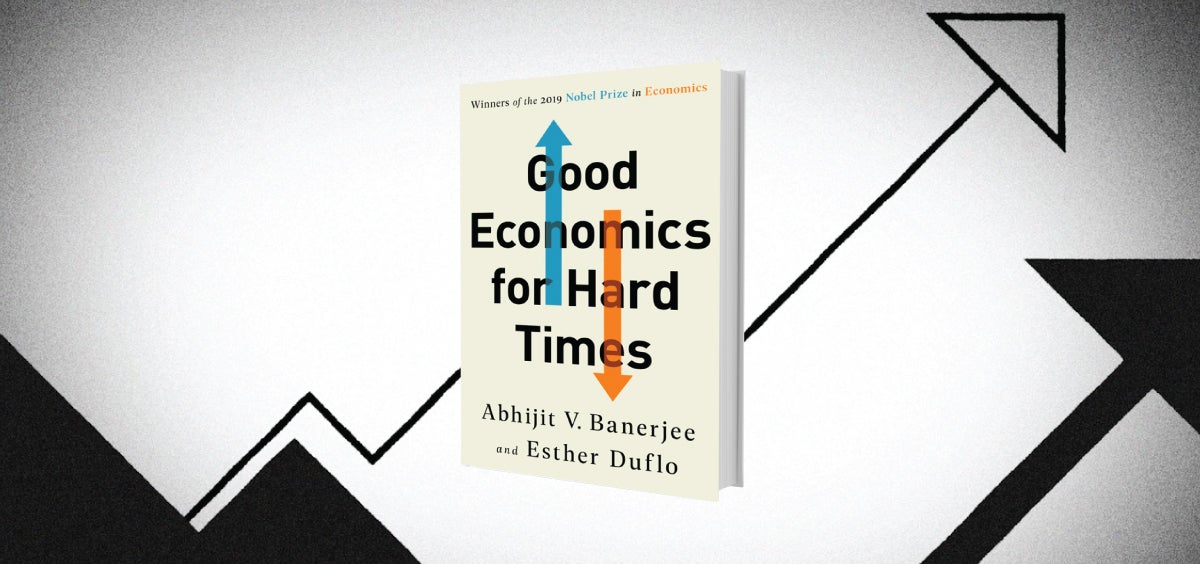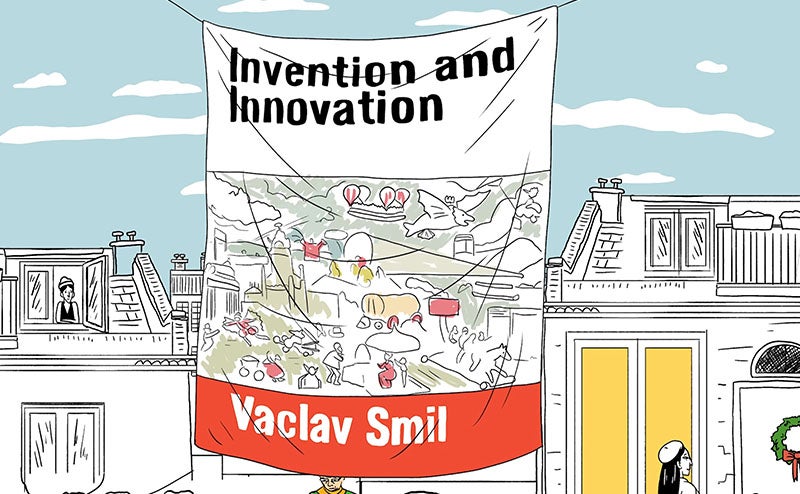An Elegant Defense gives you all the context you need to understand the science of immunity.
Did you know that there’s no such thing as the Nobel Prize for Economics? The economics award that most people refer to as the Nobel is an add-on, the product of a 1968 gift from a big bank celebrating its 300th anniversary. That’s why the name of the award is the Sveriges Riksbank Prize in Economic Sciences in Memory of Alfred Nobel.
The economics prize differs from the official Nobel Prizes in another way: It honors a social science rather than a natural science. Economics is not grounded in natural laws like Newton’s law of gravitation. It’s rooted in human nature, which is notoriously hard to predict.
I think about this every time I hear about a new book on economics and consider adding it to my bookbag. I have no trouble finding books or articles written by smart economists. But I do sometimes worry that those economists won’t have appropriate humility about what economic methods can and cannot teach us, especially right now when the global economy is in an unprecedented state of extreme instability because of the COVID-19 outbreak.
Two economists who are honest about the limits of economics and don’t oversimplify are the husband-and-wife team of Abhijit Banerjee and Esther Duflo. They’re the couple who started MIT’s Abdul Latif Jameel Poverty Action Lab (J-PAL). I have always admired their rigorous, experimental approach to assessing the merits of different approaches to fighting poverty, and I loved their first book, Poor Economics (2011). So I was pleased when I learned they were going to publish a second book, Good Economics for Hard Times. Two weeks before the book hit the bookshelves, they won the 2019 Sveriges Riksbank Prize in Economic Sciences in Memory of Alfred Nobel, along with their colleague Michael Kremer.
Good Economics for Hard Times!
a selection from Good Economics for Hard Times
Just like the couple’s first book, their new one is easily accessible for readers who don’t have a degree in economics. And they acknowledge at the very beginning, “We, the economists, are often too wrapped up in our models and our methods and sometimes forget where science ends and ideology begins.”
In one important respect, the new book is a significant departure from their previous one. Poor Economics, as its name suggests, focused on poor countries. Good Economics for Hard Times focuses instead on the policy debates that are getting so much attention in wealthy countries. (Obviously, since it was written long before the coronavirus pandemic, it doesn’t touch on that issue.) Although it’s clear that their real expertise is microeconomics (the study of how individual people make decisions) rather than macroeconomics (the study of how an overall economy behaves), Banerjee and Duflo are good at assembling and explaining the facts behind contentious issues like immigration, inequality, and trade.
I’ll give you an example from their discussion of immigration. It turns out that the field of economics has more clarity than I realized about the effect of immigration on jobs.
You have probably heard the argument that when immigrants who are willing to work for low pay show up in a community, they trigger the reduction of wages for some percentage of the local population. But Good Economics for Hard Times shows how that concern is misplaced. “There’s no credible evidence that even relatively large inflows of low-skilled migrants hurt the local population,” Banerjee and Duflo write. “This has a lot to do with the peculiar nature of the labor market. Very little about it fits the standard story about supply and demand.”
Why doesn’t the labor market fit the standard story? Banerjee and Duflo show that migrants are not just workers; they’re also consumers. “The newcomers spend money: they go to restaurants, they get haircuts, they go shopping. This creates jobs, and mostly jobs for other low-skilled people.” Another reason is that an influx of new laborers reduces companies’ incentive to automate their operations. “The promise of a reliable supply of low-wage workers makes it less attractive to adopt labor-saving technologies.”
In contrast with immigration, economists do not have clear data or conclusions when it comes to what drives economic growth. As I noted in my reviews of Robert Gordon’s great book The Rise and Fall of American Growth and Vaclav Smil’s masterpiece Growth, I have a lot of optimism about the ways artificial intelligence and other digital tools can accelerate learning, productivity, and innovation. But that said, Banerjee and Duflo make a powerful case that it’s just about impossible to make specific predictions in this area. “Of all the things economists have tried (and mostly failed) to predict, growth is one area where we have been particularly pathetic.”
Some economists argue that there’s at least one sure-fire way to boost an economy: cutting taxes. But Banerjee and Duflo show that even the iconic version of these cuts, the major tax reform enacted under Ronald Reagan, did little if anything to accelerate growth. “There is no evidence the Reagan tax cuts, or the Clinton top marginal rate increase, or the Bush tax cuts did anything to change the long-run growth rate,” Banerjee and Duflo write.
But don’t high taxes on wealthy people like me reduce our incentive to work hard and create new jobs? The answer is no. Banerjee and Duflo found no evidence that people at the top of the income distribution change their behavior in ways that affect the overall rate of economic growth. “In a policy world that has mostly abandoned reason … let’s be clear: Tax cuts for the wealthy do not produce economic growth.” Banerjee and Duflo have given me even more reason to advocate, as I did in this recent post, for a tax system in which the rich pay more taxes than we currently do.
Banerjee and Duflo also offer good insights on what’s causing the economic despair in rural and Rust Belt America (before COVID-19). They offer a stinging critique of the financial sector and its behavior, but they find that the biggest driver of despair is the sorting that results from the expansion of global trade. “Those lucky enough to be in the right place at the right time, with the right skills or the right ideas, grew wealthy, sometimes fabulously so,” they write. “For the rest … jobs were lost and not replaced…. Trade has created a more volatile world where jobs suddenly vanish only to turn up a thousand miles away.”
I’m in favor of trade, and I think Banerjee and Duflo overemphasize the role it plays in job losses and underemphasize the big role played by technological advances. But they are right that political leaders could be more honest that there are winners and losers from trade and from new technologies—and then enact smart policies to help. Sadly, “the United States [did] not come close to compensating workers who lost out,” they write.
In the end, Good Economics for Hard Times felt to me like a good complement to books that paint intimate portraits of what it’s like to grow up poor in America, including Educated, Hillbilly Elegy, and Evicted. Banerjee and Duflo use extensive data to zoom out and show us a wider view of these human dynamics. Their research is not hard science, like chemistry or physics. But I found most of it to be useful and compelling. I suspect you will too.





